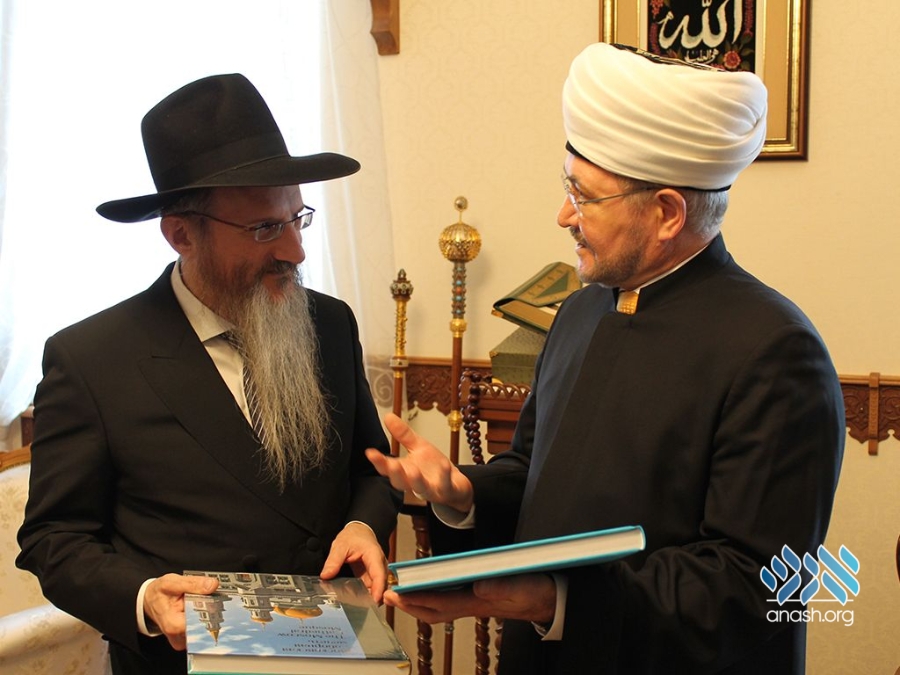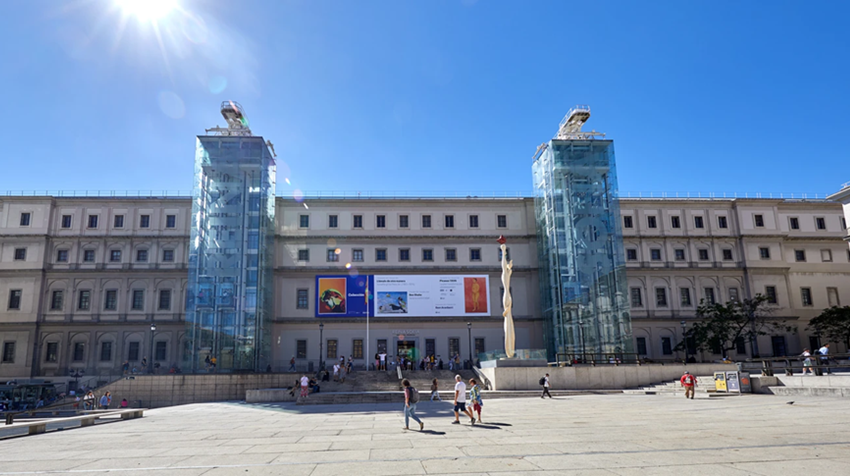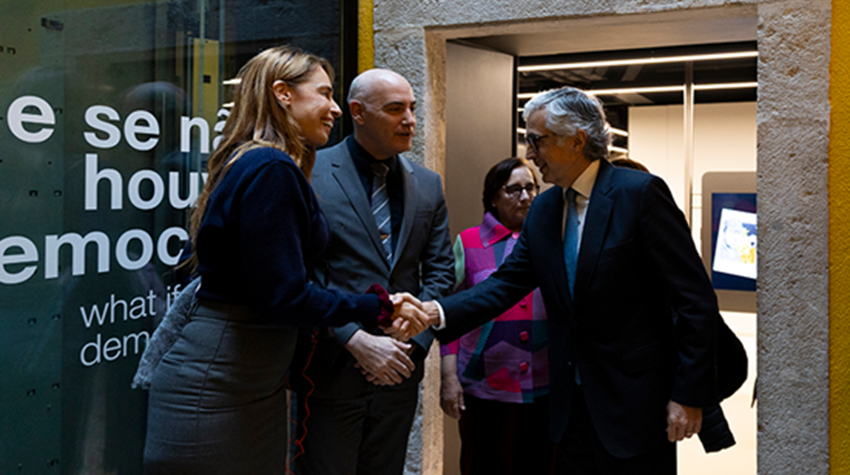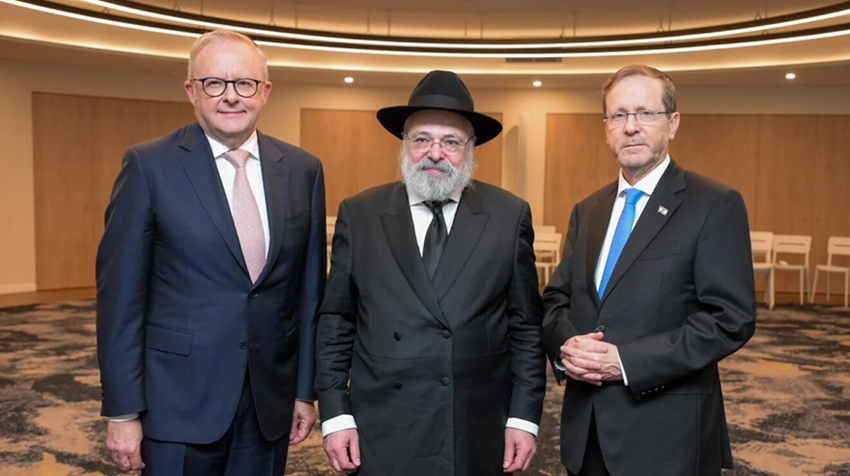Chief Rabbi Lazar at one of the meetings with the Chief Mufti in Russia
It is a Chabad community created since the beginning of the 1990s. It already has 400,000 Jewish souls who benefit from a large religious, cultural and educational infrastructure to enjoy Jewish life. But something serious is happening now. In that immense country with so many peoples, cultures and religions, Jews may be targeted by extremism that gained new momentum after the October 7th massacre in Israel.
After antisemitic incidents in the Islamic republics of Russia led to the torching of a Jewish center in Nalchik and an antisemitic mob in Dagestan, Chief Rabbi Lazar condemned the attacks and called for all citizens to do their part in maintaining peace.
Against the backdrop of the current situation in Israel, Russian President Vladmir Putin convened religious leaders in Russia, including Chief Rabbi Berel Lazar, along with representatives of various faiths and other dignitaries.
The Chief Rabbi delivered a fiery address about the plight of the Jews in Israel and around the world, including right there in Russia. The assembled, including President Putin, closely listened to every word. Lazar also asked him to help free the hostages in Gaza and spoke out against Hamas.
In his speech, Rabbi Lazar called to strengthen the struggle against extremism, and forcefully stated that terror organizations must be isolated and destroyed. The Chief Rabbi’s words were delivered with great emotion and resonated with millions of viewers across Russia, generating substantial interest and attention.
“It is vital that our meeting today sends a clear message: ‘We are in favor of mutual respect, friendship, and cooperation, but we will not be tolerant toward those who are themselves intolerant and advocate extremism and violence.’ Unfortunately, the line between hatred and violence is very thin. The ideology of hatred always leads to violence and terror. Our main request to the authorities, both federal and local, is an unwavering and uncompromising battle against extremism," Lazar Rabbi said.
“We all pray for peace and hope that there will be no more wars. But peace with murderers is, by definition, impossible. Therefore, as we mourn and grieve for the hundreds of innocent victims who were killed by terrorists on October 7 and as we pray for the release of over two hundred hostages, we know that there can be no negotiation or compromise with terrorists. Every terrorist organization must be isolated and dismantled,” he added.
After antisemitic incidents in the Islamic republics of Russia led to the torching of a Jewish center in Nalchik and an antisemitic mob in Dagestan, Chief Rabbi Berel Lazar condemned the attacks and called for all citizens to do their part in maintaining peace.
“People here do not take to the streets with protests in support of terrorist organizations because we all know that they serve the extremists everywhere. Even when planning a demonstration that is supposed to be a peaceful protest, it often leads to violence.
It is essential that our meeting today sends a clear message to society as a whole: ‘We are in favor of mutual respect, friendship, and cooperation, but we will not tolerate those who are themselves intolerant and advocate extremism and violence.’ Unfortunately, the line between hatred and violence is very thin.
The ideology of hatred always leads to violence and terror. Thanks to G-d, we have not encountered state-sponsored anti-Semitism for many years, and there is no anti-Semitism in the streets either. However, we have past experiences. Therefore, our main request to federal and local authorities is a continuous and uncompromising fight against extremism.”
With the outbreak of the difficult events yesterday and today, Chief Rabbi Lazar noted, “We are living in very challenging times, and sadly, the difficulties have only intensified in recent weeks. Acts of terrorism, conflicts between nations, entire regions engulfed in violence with no end in sight. Instead of peace, mutual understanding, and mutual help for common development, we have tension, hatred, and even atrocities, of which incidents are increasing. Entire cities, and in some places entire countries, fall under the rule of terrorists who commit crimes against humanity.
“In Russia, by the grace of Heaven, the relations between peoples and the ties between cultures are unique. They were built over centuries on principles of mutual respect. I saw this with my own eyes many times, and in particular, every time I visited the North Caucasus, I experienced joy when I saw how Muslims and Jews help each other, inviting each other to their holidays with respect and appreciation.
“However, the events of the last few days show that this traditional friendship is being put to the test. These events did not happen by chance; they were preceded by a fiery surge of extremism and terrorism on social networks. It is clear that we cannot really influence what is happening in Gaza or on the Lebanese border; we can only pray together that peace will finally come. But we can and must ensure that the toxic seeds of extremism and terrorism do not, G-d forbid, spread from there to here.
“The federal authorities understand this and are doing everything to protect the foundations of our national state and this unique friendship between the peoples of Russia. I have no doubt that the aggressive actions of the blinded extremists promoting hatred in Cherkessia and Nalchik will face a strong response from law enforcement authorities.
In conclusion, the Chief Rabbi addressed all citizens: “We all understand that we cannot solve this problem solely through the efforts of the authorities. We, the residents of Russia, representing different nations, faiths, and cultures, must now contribute our share. Today, I call on every resident and citizen: everyone must do everything to preserve this unique atmosphere of mutual respect and support that makes Russia a good place to live.
“If we allow extremists to burn our bridges of friendship now, it will be very difficult to rebuild them later. Let us demonstrate through our actions that our national traditions are traditions of mutual help, our culture is a culture of peace, and our religions are religions of justice and assistance.”
Source: Anash.org


































